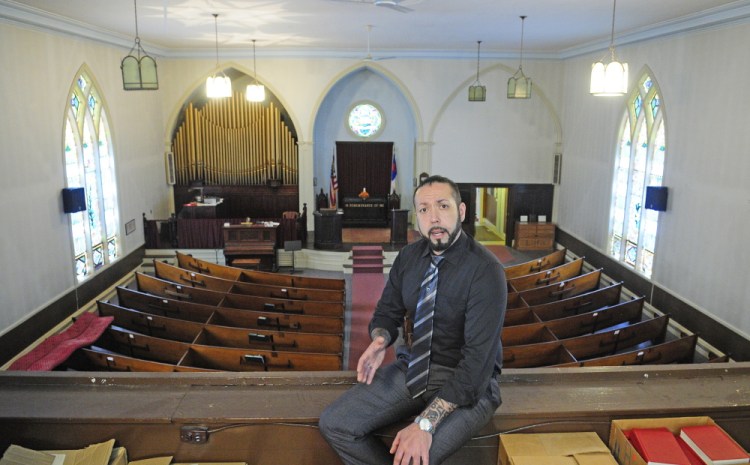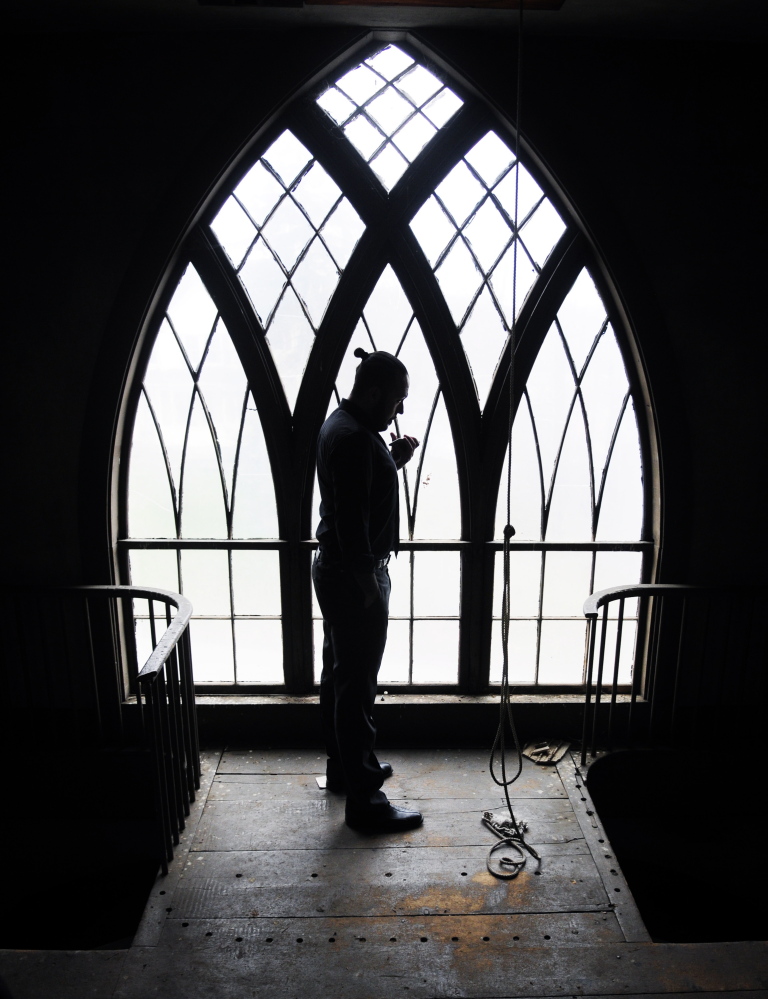GARDINER — The hard cider producer aiming to open in a former church for more than a year has finally bought the 172-year-old building to house its tasting room and a small brewery operation for testing new ciders.
Lost Orchard Brewing Co., which approached the city last year to find a way to open the business in a residential area, plans to open its main brewing operation in a South Gardiner warehouse and have its hard cider, sold under the label Crabby Apple Cider, on shelves by July 4.
The original plan was to open a cidery in the former Gardiner Congregational Church on Church Street that could produce up to 50,000 gallons of hard cider a year and potentially open a larger production plant elsewhere in the city if demand warranted. Now the company plans to open its main production operation in a warehouse at 650 River Ave., and use the former church property mostly as a tasting room and to make small batches of hard cider.
The Planning Board is scheduled to review the proposal at the South Gardiner warehouse at its May 12 meeting. The Church Street building hasn’t been used as a church for more than half a decade, but everything indicates otherwise. Hymnals are tucked in the back of the rows of pews covering the expansive sanctuary floor. Robes hang on a rack in the former meeting space in the back. And on the pulpit is a single sheet of paper with what appears to be sermon notes from the last one delivered.
David Boucher, founder of Lost Orchard Brewing Co., walked through the church Thursday while on hold while setting up Internet and phone service. He had been in the building countless times since first seeing it near the end of 2013, but this was one of the first times since his company had closed the $100,000 sale on Monday.
TANKS TOO HEAVY FOR CHURCH
The company shifted its plan from producing all of its hard cider in the church to producing the bulk of it in a warehouse because of the expense and logistics of re-enforcing the church floors to withstand the weight of the tanks for making the cider, Boucher said.
He envisions the tasting room as a destination for people visiting the city and an extension of downtown redevelopment, since that area of the city is just a few hundred feet down Church Street. If the company is able to make his goal of getting product on store shelves by July 4, Boucher said he hopes he’ll be able to open the tasting room that weekend as well.
He plans to build the tasting room’s bar in the altar area of the sanctuary using wood from pews in the back of the room. The majority of the pews will remain in place, as will the large pipe organ.
The brewing operation in the church will be housed in a smaller meeting room in the back of the building. Changes to the interior of the building will mostly be cosmetic, such as new paint, removing outdated wood paneling and adding “some new curtains,” Boucher said while looking at the pink, lacy curtains covering the back room’s windows.
The venture, which has applied through the city for a Community Development Block Grant of $240,000, is being funded by around $286,000 in loans from a bank and the Finance Authority of Maine through the Kennebec Valley Council of Governments, and owner contributions, according to its CDBG application.
Before the company could close on the church property, the city had to approve a new zoning process that would allow some exemptions on a case-by-case basis. The zoning rule, approved by councilors last June, allows the city to approve some commercial uses in older, nonresidential buildings in residential neighborhoods.
CANS OVER BOTTLES
Boucher originally planned to bottle everything, but he now expects to use a mobile canning service to can most of the cider. Canning beer has become more popular for both national breweries such as Samuel Adams and local microbreweries such as Rising Tide Brewing Co.
Boucher credited Baxter Brewing Co. in Lewiston, which has canned its beers since opening more than four years ago, for “killing the stigma that the only thing you’re going to get in a can is Bud Light, Coors Light.”
Lost Orchard Brewing Co., which will source its cider from Maine Apple Co. in Monmouth, will also sell 22-ounce bottles and offer growler fills at its tasting room, Boucher said.
To start, the company will make its basic flagship cider, but Boucher hopes to do a run of dry blueberry cider this summer. In the future, the company plans to make more specialty ciders, including one aged in gin barrels from New England Distilling Co., he said.
Boucher hopes to produce 75,000 gallons of hard cider this year with three 60-barrel fermenting tanks, and 150,000 gallons after a year of production.
Send questions/comments to the editors.



